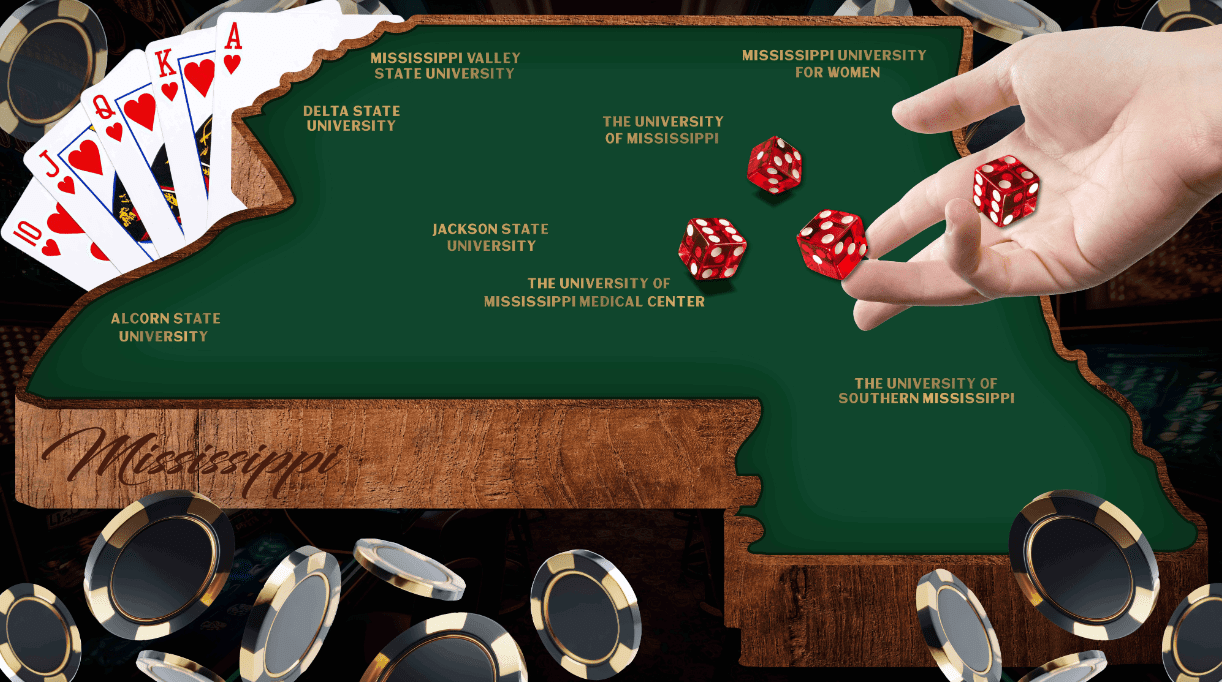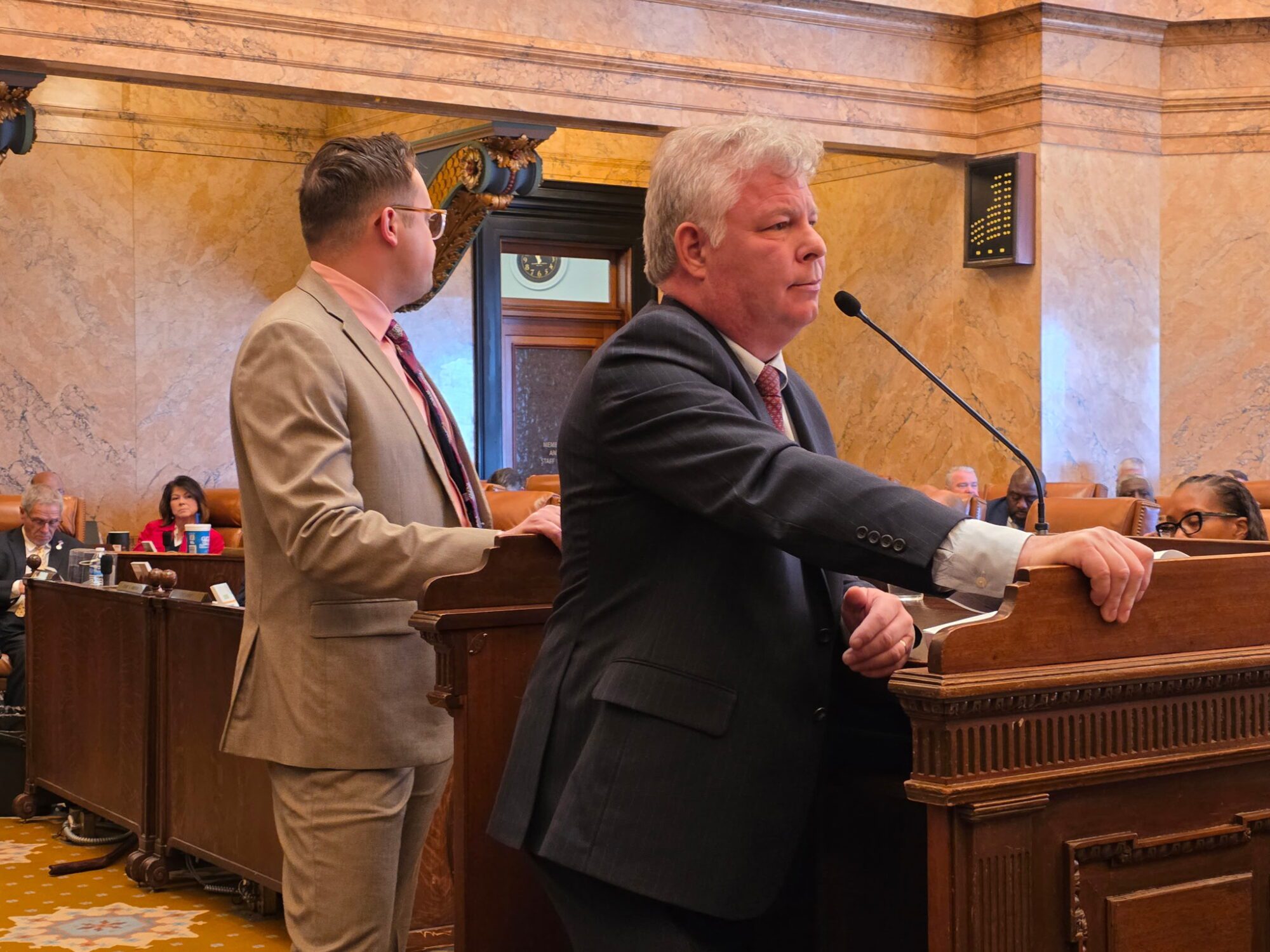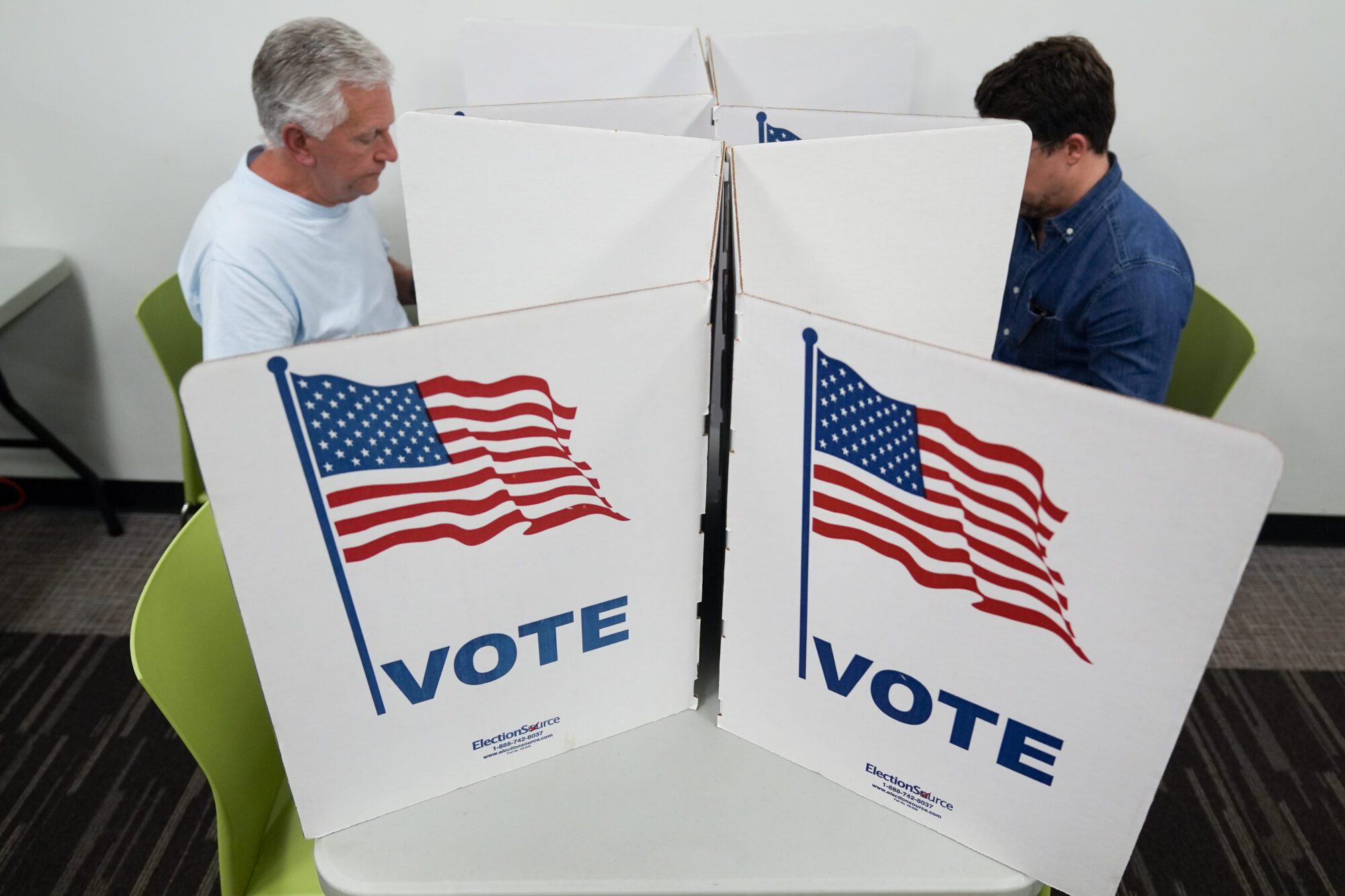
(Photo / graphic from Ole Miss News)
- Nearly 40% of students report betting, with researchers urging prevention and education efforts on campuses.
The stats scrolling at the bottom of televised football games, mandated athlete injury reporting and fantasy sports drafts are not just extra information or fodder for water cooler discussions. They are for gambling.
Anyone with a smartphone carries practically a casino in their pocket. And a recent University of Mississippi study of students from seven Mississippi universities found that 39% of college students gambled in a variety of formats in the past year. Of those who engaged in sports betting, 6% met criteria for problem gambling as defined by the American Psychiatric Association.
These betting activities are more prevalent among certain groups of college students, said Hannah Allen, executive director of the university’s William Magee Institute for Student Wellbeing and assistant professor of public health.
“We found that gambling was more prevalent among students who were male, white, lived off campus, participated in sports (including club and intramural sports), and were involved in Greek life,” she said.
Even though the findings are on par with the nation, what surprised Ole Miss researchers was that students played the lottery and bet on cards slightly more – prevalence of 18% and 17%, respectively – than they bet on sports, which ranked as the third most common type of gambling with 16% of students saying they engaged in sports betting in the past year.
Students who participated in sports betting were more likely to be younger, male, white, participated in athletics, involved in Greek life and attended a Division I university.
Despite mobile sports betting being off the books and illegal in Mississippi, students found ways to place bets. The majority of students, 57%, who engaged in sports betting did so online through a sportsbook in the U.S. or Canada, with the remaining betting online through a sportsbook outside the U.S. or Canada or in-person with family and friends, with a bookie, or at a casino.
More than a third, 36%, of students reported seeing daily sports betting ads, while 38% said they saw such ads once a week.
When college students do not win the money or end up having fun — the main motivations for placing a bet — the negative consequences, or harms, became apparent. The most common consequences of gambling articulated by students include losing money, feeling ashamed and regretting their sports betting behavior.
Looking deeper into the study, those who are experiencing the most harms are the male, nonwhite sports bettors.
“Although they (nonwhite males) gamble less, when they do gamble, they experience more consequences from it,” Allen said. “It’s important to note that not everyone experiences the same level of consequences.”
Besides UM, including the university’s Medical Center campus, the study included students from: Alcorn State University, Delta State University, Jackson State University, Mississippi University for Women, Mississippi Valley State University and the University of Southern Mississippi.
Mississippi college students fall within the national trend when it comes to gambling, but what Ole Miss researchers are concerned about are the percentage of those students who may be in danger of becoming problem gamblers and what preventative measures could be taken.
Ten percent of students who bet on sports were found to have a moderate risk for problem gambling, while 6% met the criteria to be classified as problem gamblers, said Daniel Durkin, associate professor of social work.
Accordingly, Allen and Durkin recommend establishing proactive approaches to help educate the university communities about gambling and its potential harm, as well as offering treatment options on campuses.
Universities should consider incorporating gambling education into existing wellness programming, such as those focused on alcohol and drug use or on financial wellness, and they should revisit current campus policies regarding student gambling and gambling on university athletics, Allen said.
“College campuses need improved prevention efforts — that could include health education, media campaigns, access to information and resources for students,” she said. “There also needs to be increased screening and referral to treatment in our campus counseling and health centers.”
Such screenings could be included with questions of whether a patient smokes, consumes alcohol or drugs during the intake process. But it can also begin with conversations at home.
“We really want parents to start talking to their kids about gambling because we’re finding out more and more that these conversations just aren’t happening,” Durkin said. “A lot of parents just aren’t aware that these problems are developing, and that would just be a good start: just have a conversation.”








